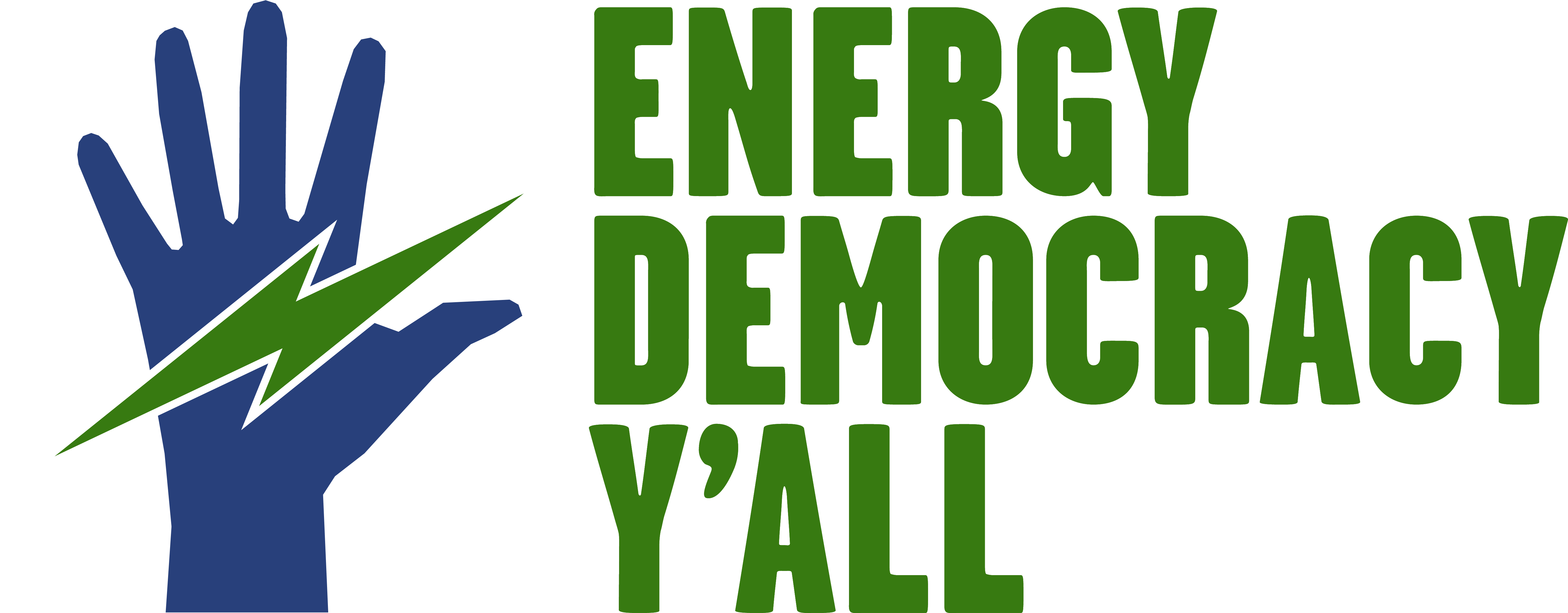Electric Cooperatives
So you get your electricity from an Electric Cooperative …
But what does that mean? And what are the challenges and opportunities?
Rural electric cooperatives are not-for-profit utilities that are owned by their customers, or members. We like to call them member-owners!
Co-ops provide electricity for predominantly rural areas, and typically purchase their power on energy markets, though a few co-ops do generate electricity themselves. Regardless of where that energy is produced, most co-ops use a mix of fossil fuels (coal and natural gas) and renewables (wind and solar) to provide electricity to you. Some co-ops even provide rural broadband internet as well!
Unfortunately, even though co-ops should be democratic institutions, they often function more like private, monopoly utilities. Co-ops are plagued by a lack of transparency, and worse, some even stifle member-owner involvement.
Co-ops are minimally regulated by state utilities commissions and may not have to comply with state renewable energy or energy efficiency standards, so they aren’t always incentivized to modernize their energy systems. They often rely too heavily on expensive fossil fuels, and are burdened by outdated assets (such as old coal plants).
A “business-as-usual” mindset by co-op directors means that your co-op could be using an outdated business model, one that lacks innovation and stifles economic opportunity. This limits your fuel choices and contributes to high energy burdens, isn’t transparent to you or member-owners like you, and prevents your rural community from enjoying the economic benefits of renewable energy. In short, co-ops might be leaving you and your community behind!
How can YOU participate in Energy Democracy
at your co-op?
Now you understand the problems that Electric Cooperatives impose on our energy system. The good news is that communities around the country are working towards solutions. YOU can participate in Energy Democracy in your community by reforming your Electric Cooperative!
First, it’s important to know that rural electric co-ops are governed by boards, who are members of the public and who are elected by you, the member-owner. Participating in your co-op’s board elections — or running for a board position yourself — are examples of the roles you can play in reforming your electric provider.
Your approach could address the following concerns:
Fuel choice: Demand a renewable energy system including wind, solar, energy efficiency and battery storage — a future that minimizes reliance on fossil fuels.
Management & transparency:
- Attend your co-op’s annual meeting
- Ask that the co-op’s data be publicly available
- Require your board members to be transparent about their political involvement.
- Demand that co-op elections be fair and transparent so that board members more broadly represent your community!
Energy/customer security: Demand permission from your co-op to produce a portion of your own energy consumption from reliable rooftop solar.
Affordable energy: Require your co-op to invest in energy efficiency and financing programs that help member-owners manage their energy bills.
Access to a clean energy system for all: Implement low- and middle-income programs that expand access to affordable solar power in your community.
But, like all kinds of democracy,
Energy Democracy only works when we participate.
There’s no blueprint for Energy Democracy, and that’s kind of the point — together, let’s create a future for all of us, one that puts clean energy and communities first!

